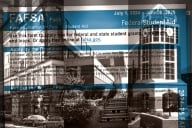You have /5 articles left.
Sign up for a free account or log in.
I read this article with interest. Our family is now a year and a half out of the parent-teacher conference cycle, but I still have vivid memories of (and a few nightmares about) the experience.
I was especially struck by item #1, "Tell us the truth." As the parent of a child with ADHD and organizational issues, I often would have appreciated more information, earlier in the semester. Ben had some amazingly dedicated teachers who would email me every week, sometimes every day, to update me on the state of his assignments and classroom participation.
This was definitely beyond most overworked teachers' job description, but being walloped with the fact that he had not yet handed in any homework, at a 15-minute conference halfway through the semester, wasn't helpful either. At least half the time the assignments were done, but buried in the depths of his backpack, and tattered and barely legible by the time we sorted them out. (And, yes, I should have been more on top of that. Good luck getting your 14-year-old to let mom go through his backpack every night just on the chance that something is awry.)
But what was more interesting to me was the perception that teachers hold "the truth." They definitely have information and an important perspective, but sometimes when parents reject a negative assessment of a child's personality or motivation, it isn't because they are in denial but because they hold another piece of the puzzle that the teacher might be unaware of.
For example, when Ben was in the seventh grade, he got into big trouble in science class for breaking three important rules: 1. Cell phones need to be turned off when class is in session; 2. No calling out; and 3. No swearing.
Ben kept his phone on, and actually took a call. To make matters worse, he cursed out the caller in a loud voice.
The science teacher advised us that he was defiant, destructive and clearly had serious emotional problems.
I would never argue that his behavior was acceptable. But what the teacher would have known if she had asked Ben, anyone in our family, or his advisor, was that my mother was in the hospital on the verge of death. Ben was afraid to miss a call to rush over to say goodbye. When his phone rang during class, he answered it, expecting the worst because no one would call him at school except in a dire emergency.
No one except the classmate who, home sick for the day, had misjudged the time and thought Ben was at lunch. Ben's anger at this false alarm spurred his unfiltered rant at his friend.
Everything he did, starting with keeping his phone on, showed poor judgment. But that is the kind of judgment 12-year-olds have. Defying the teacher and disrupting the class just weren't on his radar, even though those were the results of his actions.
Punishment was swift and severe, and added greatly to his stress. And the following spring, when he was seriously bullied on a class trip, he was afraid to ask the chaperone—the same science teacher—for a room change, because "she hates me."
Filling in the blanks, based on limited information, and assuming that we have the whole picture is actually adaptive; it allows us to infer a fire from smoke; cookies from the aroma of vanilla; and a gun from a hand in the pocket. But assigning any one person, or group of people, to be the holders of "the truth" is dangerous. We are all fallible human beings with our own agendas and blind spots. The best we can do is share information and collaborate on possible solutions, acknowledging all the time that, like everyone else, we could be wrong.





